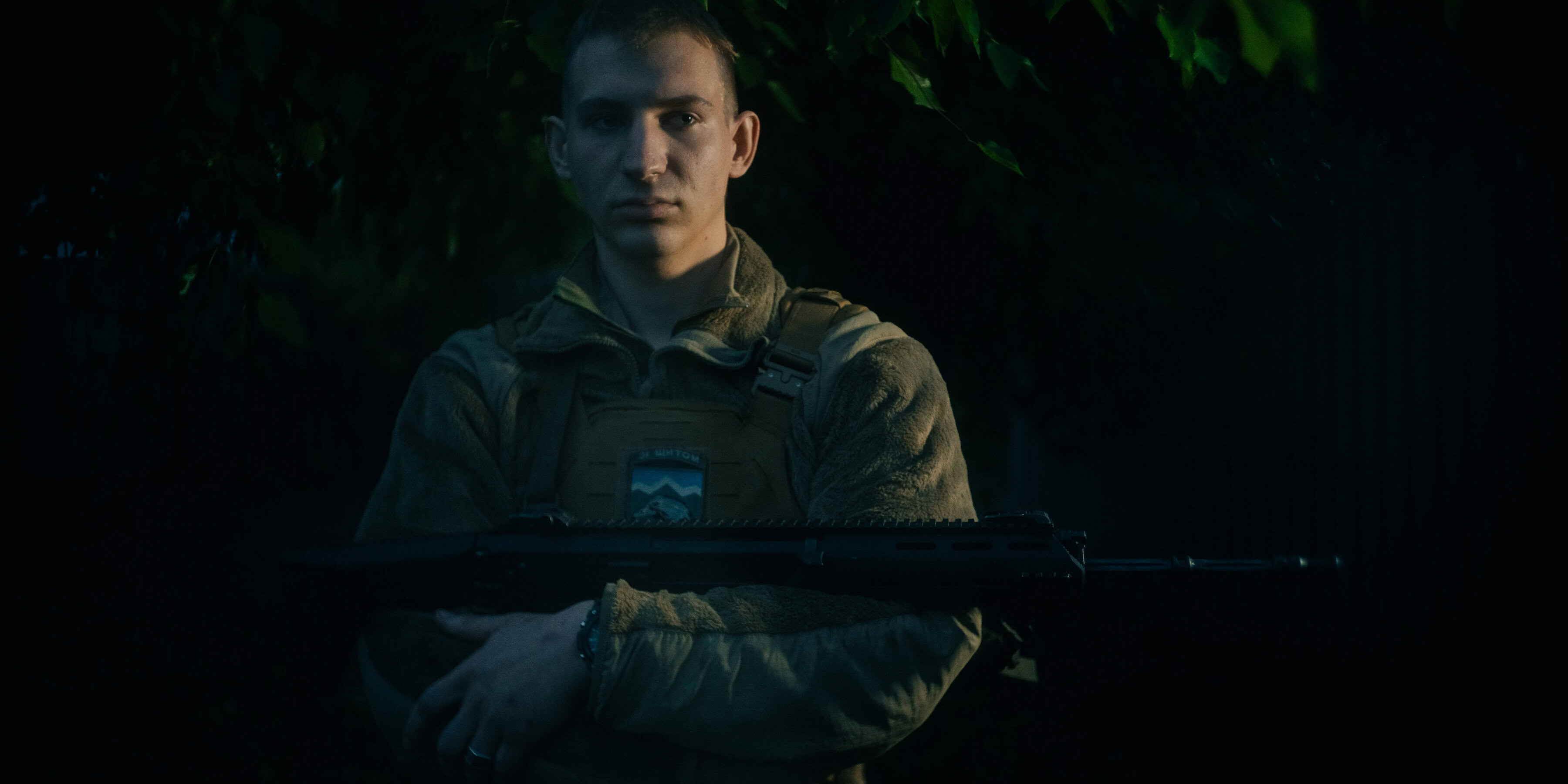

“If you really want to live, you will survive” – the story of 21-year-old infantryman ‘Korshun’
“Korshun,” an infantryman of the 10th Mountain Assault Brigade “Edelweiss,” has seen much during his seven months of combat on the front: he captured an enemy soldier, held his position alone for several days, and was wounded. His command has put him forward for the Order of Courage. At just 21, Maksym joined the military through the Contract 18-24 program. Frontliner talked with the young man about what it means to fight while others his age are still studying.
That day, the weather was terrible, and a full combat alert was announced over the radio. Through the sound of the wind, the soldiers heard some strange rustling. They began firing in the direction of the sound. When Maksym and his comrade stepped out of the shelter, the area seemed empty, but on top of the dugout lay a backpack containing a TM mine. Maksym tossed it aside, despite the risk of it exploding.
[Translator’s note: A TM mine is an anti-tank mine that Russian forces have widely used since 2014, posing a major threat to infantry and civilians.]
A little later, he heard the muffled crackle of an enemy radio. As he looked around, he spotted its owner coming back to retrieve the backpack with its deadly cargo. The soldiers opened fire on the uninvited guest, wounding him – a bullet grazed his ear. The intruder shouted, “Don’t shoot!” and surrendered. The Russian soldier was brought into the dugout, searched, interrogated, and given water and food. He admitted he hadn’t eaten properly in a month.
Maksym speaks about the enemy without hatred: “He’s a body too, a human being, one way or another. Once he’s captured – that’s it, he’s done his fighting.”
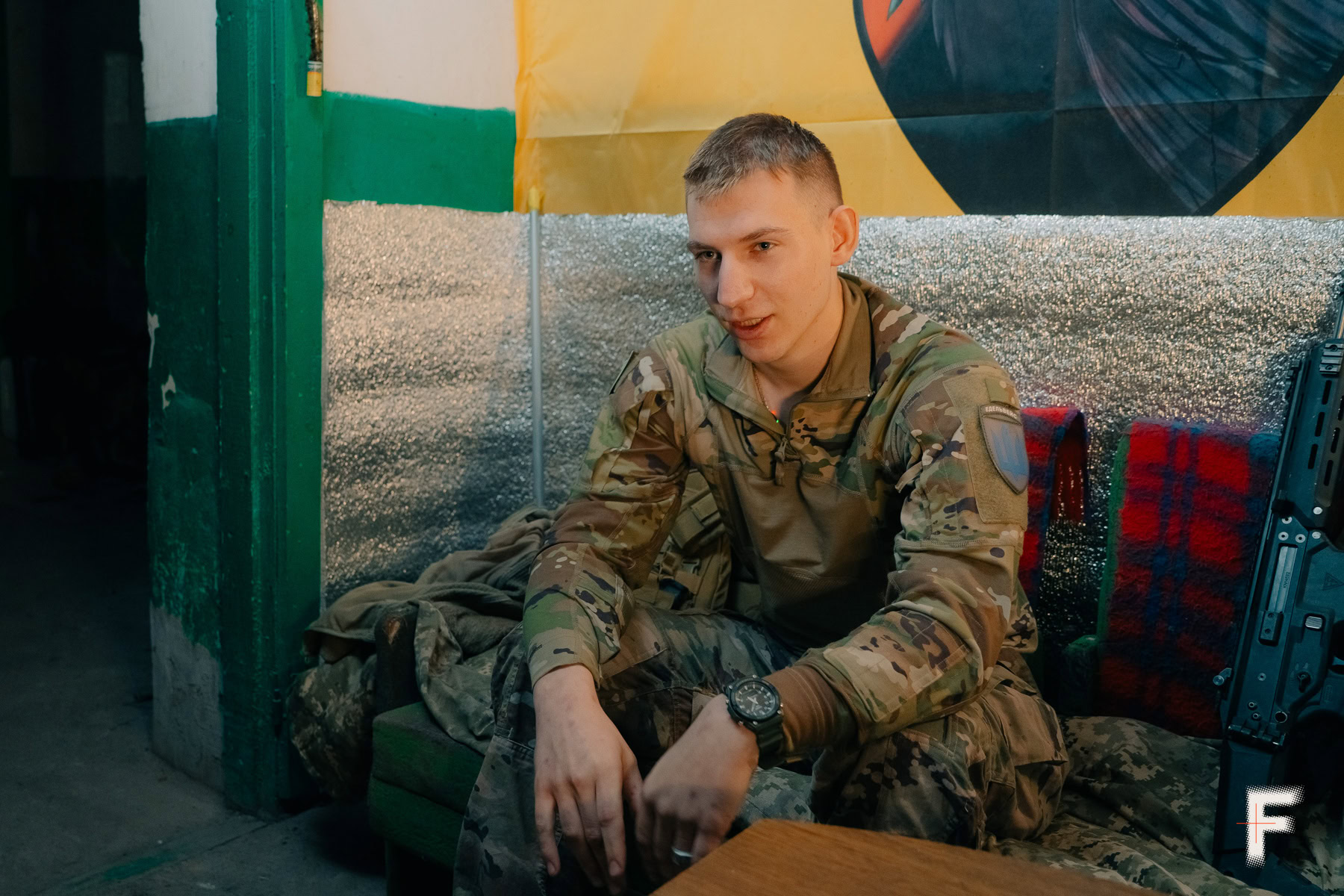

The Ural biker who rode the wrong way
The captured soldier said he had come to Ukraine all the way from the Ural region, and joined the war to avoid a prison sentence. He belonged to a group of biker-assault troops that failed to reach the positions of Ukrainian soldiers. Seven were killed, and he was the sole survivor. He spent a month hiding in a dug-out hole under a destroyed IFV before attempting sabotage.
After the interrogation, the prisoner needed to be turned over to the units handling prisoners of war. This involved being led away, alone, by following a drone. However, as soon as he left the dugout a radio command came through, aborting the operation. The prisoner barely managed to jump back into the dugout when an FPV drone exploded at the dugout entrance. On the second attempt he was successfully escorted out. The so-called Ural biker followed a Mavic reconnaissance drone to the location where he was received. He had planned to avoid a Russian prison, but in the end, it was Ukraine where he found himself behind bars.
Occupation as a push to fight
Maksym is shy, speaking with pauses, carefully choosing his words and softening sharp edges. He also smiles a lot. When the Russian-Ukrainian war began, he was 11 years old. What stands out in his memory from that time is the large number of refugees in his native Berdiansk.
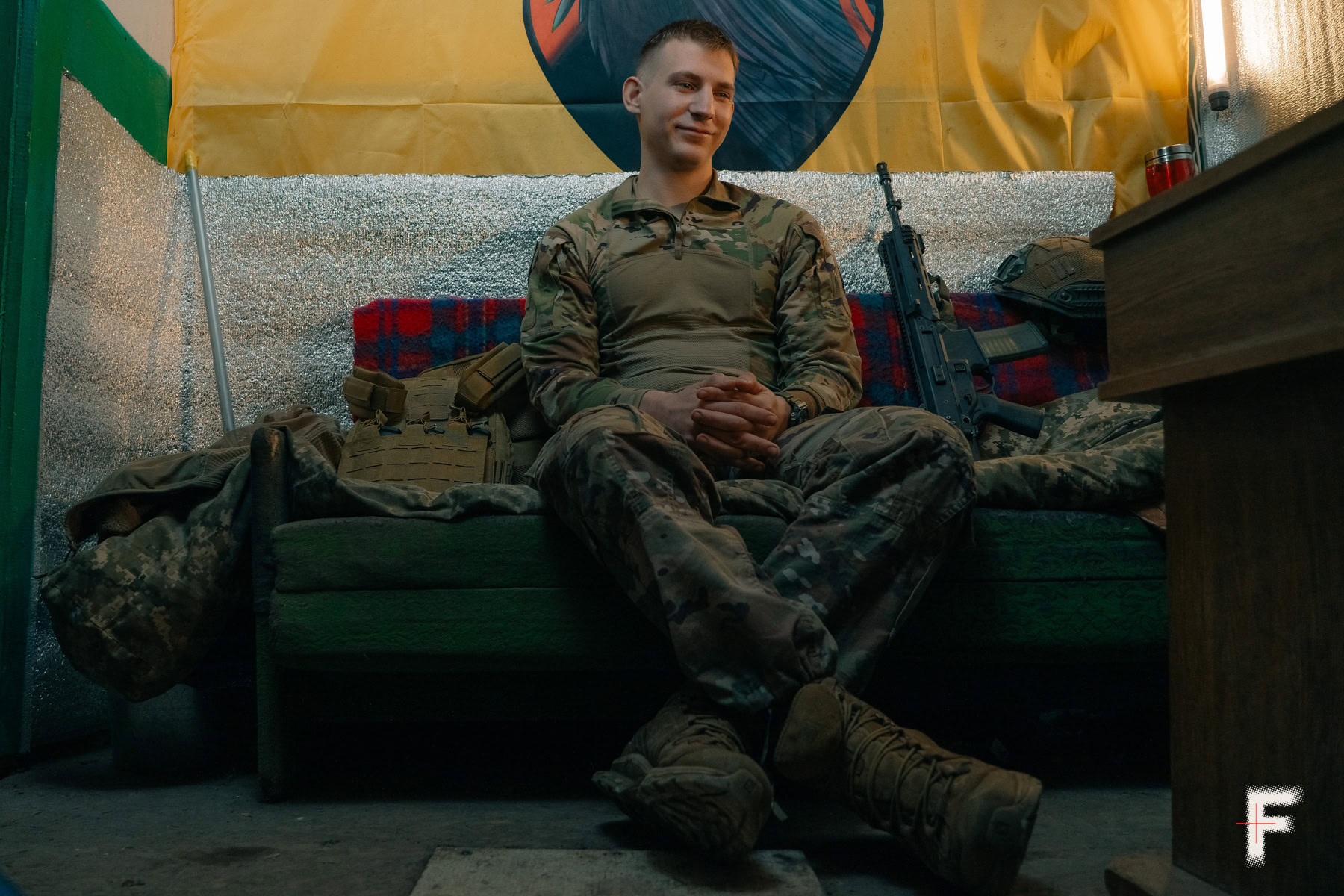

Those who fight will always tell you not to go. Because war is war.
His older brother joined the Ukrainian Armed Forces in 2019. As for Maksym, the occupation of his home city, in February 2022, became one of the reasons why he decided to join the military. He applied to the military enlistment office back in 2022, but was refused due to his age. Once the Contract 18-24 program became available, he took the opportunity. Neither his relatives, who had moved to Germany, nor his brother, who was already serving, supported this decision. “Korshun” understands their perspective:
“Relatives never support it, and those who fight will always tell you not to go. Because they know what it’s like. If a friend asked me whether to go or not, I’d tell them, ‘Decide for yourself, but I don’t recommend it. Because war is war,”the soldier says.
[Translator’s note: The Contract 18–24 program offers young people aged 18 to 24 the opportunity to join the army on a short-term contract.]
“Korshun” is trained as a marksman and serves as an infantry sniper. Although he admits that with the current tactics of fighting, the role has lost its practical relevance, so he mostly performs the duties of a regular infantryman. Currently, his unit is responsible for the Siverskyi direction. He talks about infantry work with a practiced nonchalance:
“You sit in a dugout or a foxhole. You do your work – dig or reinforce your position. All kinds of adventures. If the weather’s bad, the enemy can come, or someone may tell you to do something, shoot somewhere. All sorts of incidents can happen,” the soldier shares.
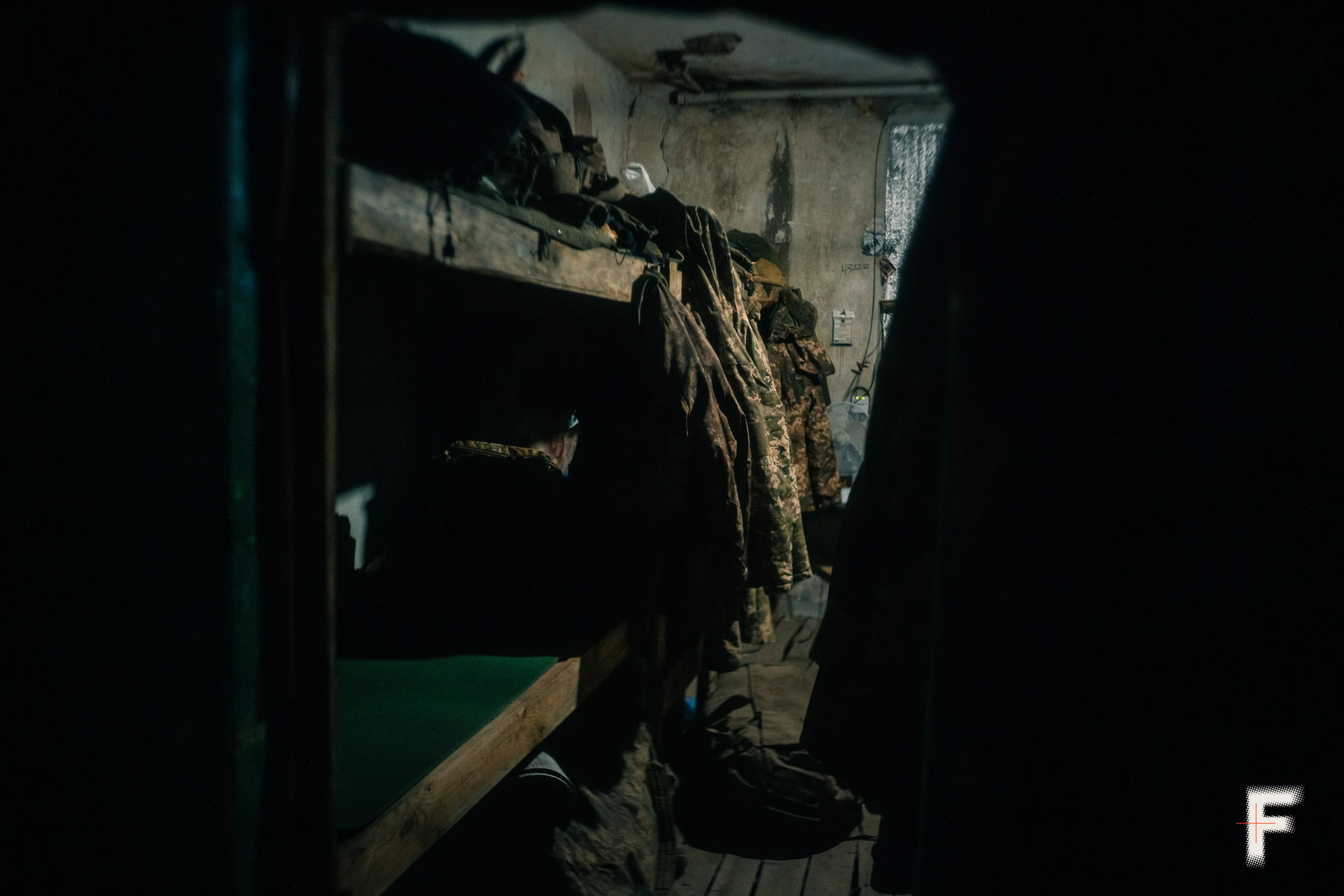

The soldier says that you can sense the change in the war’s dynamics as you walk across a field, stepping over endless meshes of fiber‑optic cable. At first “Korshun” thought they were tripwires. The growing number and variety of drones on both sides is the defining feature of today’s war.
The distances that infantrymen must cover on foot varies, from four hundred meters to eight kilometers. The lengths of time soldiers spend on a position also depend on the operational situation and the possibility of carrying out a rotation. Maksym’s longest stay “in the hole” was 37 days, and some of his comrades stayed for two months.
Unconventional weapons
During that same rotation, after taking the prisoner, ‘Korshun’ was wounded. At one point the shelling intensified. Ukrainian defenders were targeted with everything: artillery shells, aerial bombardment, some carrying chemical weapons that burned everything around. The enemy dropped a phosphorus munition – nicknamed ‘lighter’ – which burned through the sandbags protecting the dugout, penetrating the interior.
Phosphorus is hard to put out. It’s a terrible thing.
Phosphorus bombs are among the weapons prohibited by the Geneva Conventions. When exposed to oxygen, phosphorus ignites immediately, unleashing an intense fire that is nearly impossible to put out and releasing a choking, toxic smoke. Its extreme heat scorches everything in its vicinity, and contact with skin results in severe chemical burns.
Everything around the dugout was burning, and the fragment that penetrated inside ignited the interior as well. Maksym tried to put out the fire, stamping soil on it with his foot, and in that instant, his foot was burned.
“A small piece got on me, and that’s how it happened. Phosphorus is hard to put out, the ground stays hot, to the max. It’s a terrible thing,” the soldier admits.
He says the enemy also uses chemical gases – a reason why ‘Korshun’ states that a soldier’s two most valuable tools are a shovel and a gas mask.
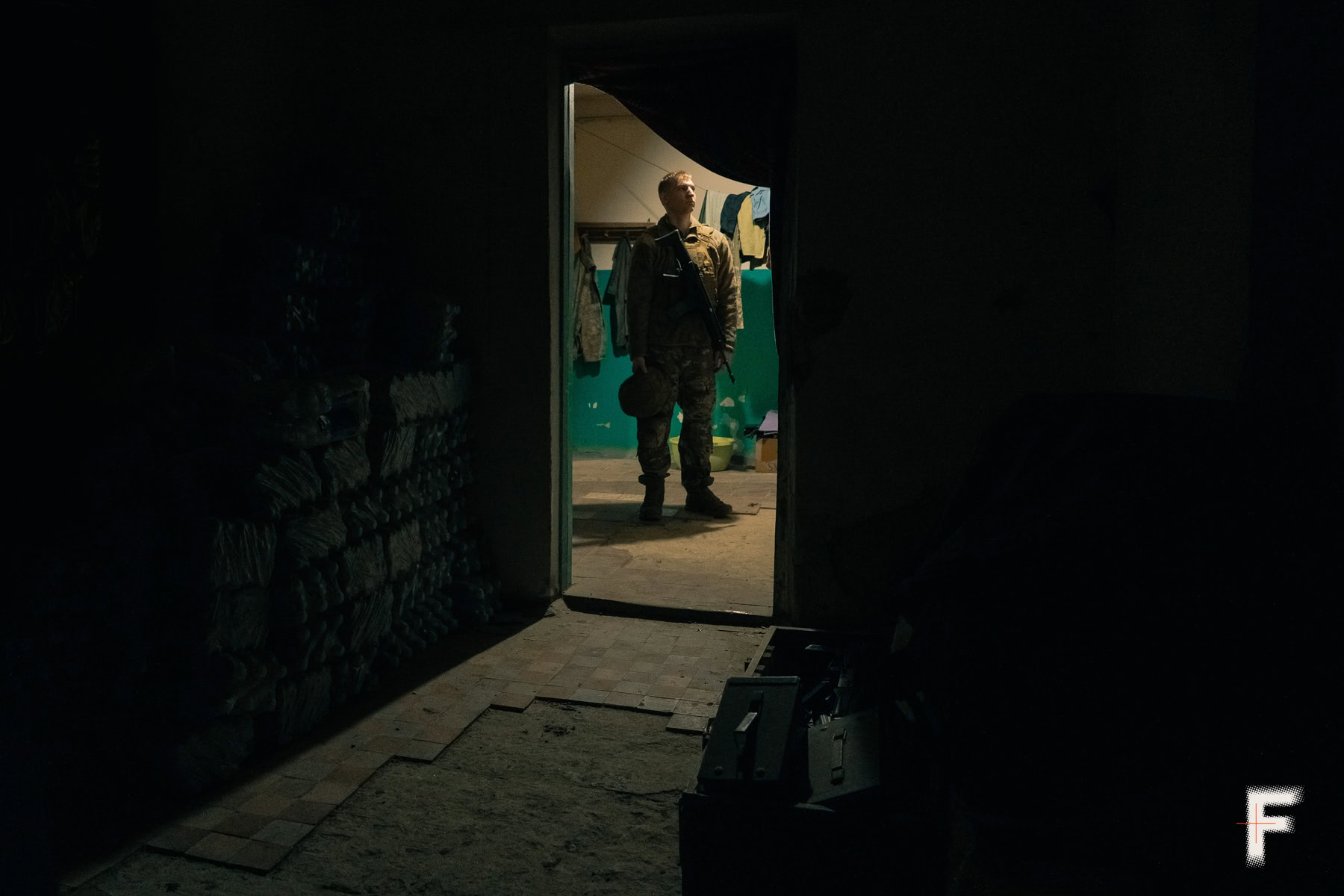

Alone in the dugout
The adventures didn’t end with a captured enemy and phosphorus burns. At that time only two people remained at the position and there was no water. One of Korshun’s comrades decided to take a risk and retrieve a package that been dropped by a drone nearby.. Maksym tried to persuade him not to go, but he set off anyway. He never returned. “Korshun” assumes:
“He ran out for water, probably got killed somewhere. Didn’t come back, I don’t know what happened to him. I couldn’t hear much at the time as I was having hearing problems. I reported to my guys that I was here alone. I held the position for six or five days. Then total helplessness set in, I literally couldn’t do anything. And I inhaled a bunch of phosphorus. Speaking was hard, breathing was hard, the injuries – this all was weighing me down,” the soldier recounts.
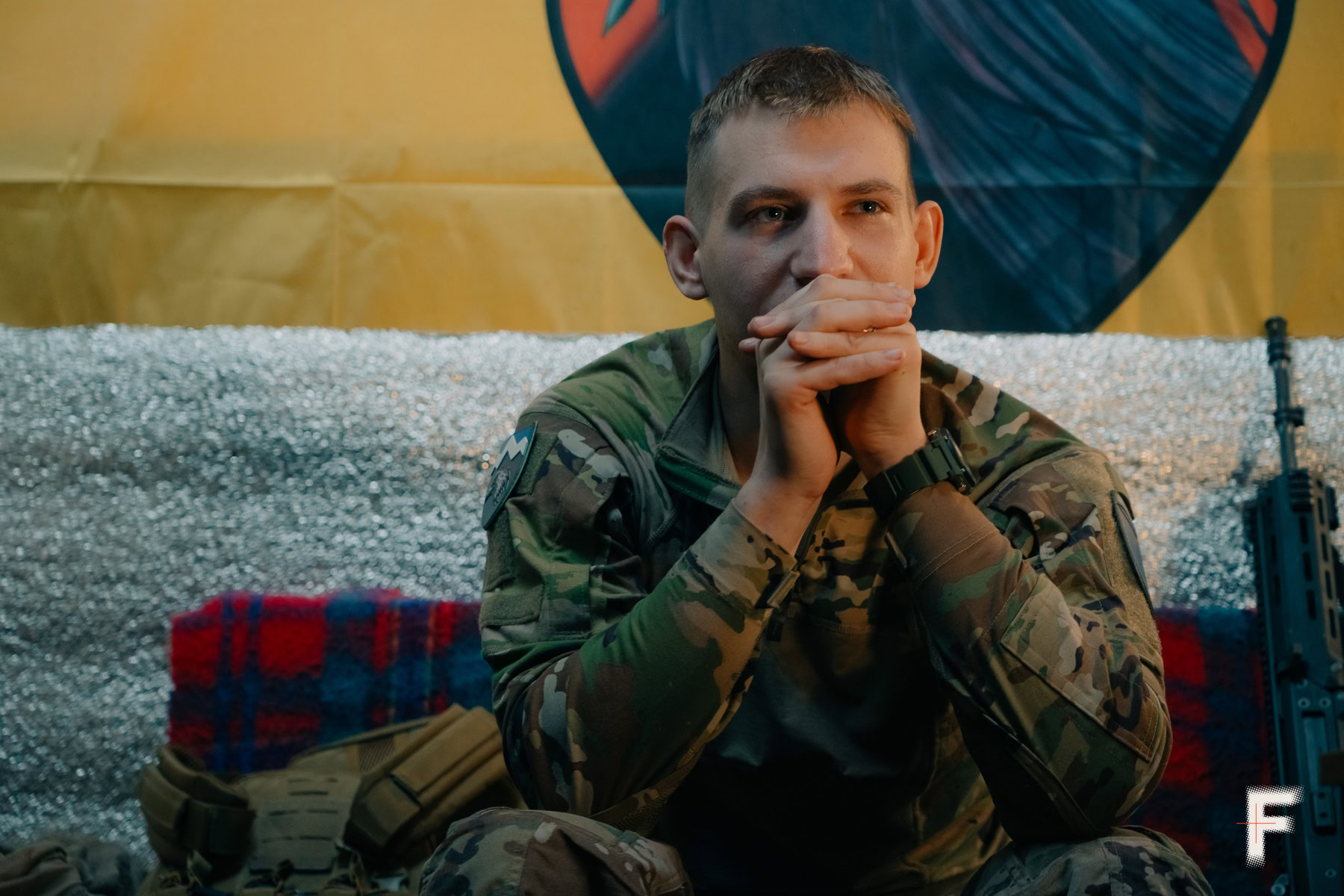

Finally, his comrades dropped a special antenna from a Pavuk drone, which attaches to a tree and boosts communication. Within a day, they began extracting “Korshun.” The evacuation was done in stages: first to one position, then to another. His hearing problems made the operation difficult. Guided by the drone, Maksym struggled to catch all the commands over the radio. When a warning about a threat came and he was ordered to lie down, he didn’t react in time. When he turned the radio up to full volume, he heard shouting: “Run, the ‘bird’ spotted you!” He had to run the rest of the way.
During his extraction, he relied on an “invisibility cloak” – a poncho that serves as a countermeasure for thermal-imaging. Maksym says that it’s very effective: from a drone, a person underneath it is almost invisible. However, if the drone hovers directly overhead, movement can be detected.
While Maksym was at the position, he had to evacuate fallen comrades and provide aid to the wounded. He doesn’t speak much about this experience; those who have talked with him note that the young infantryman is very modest.
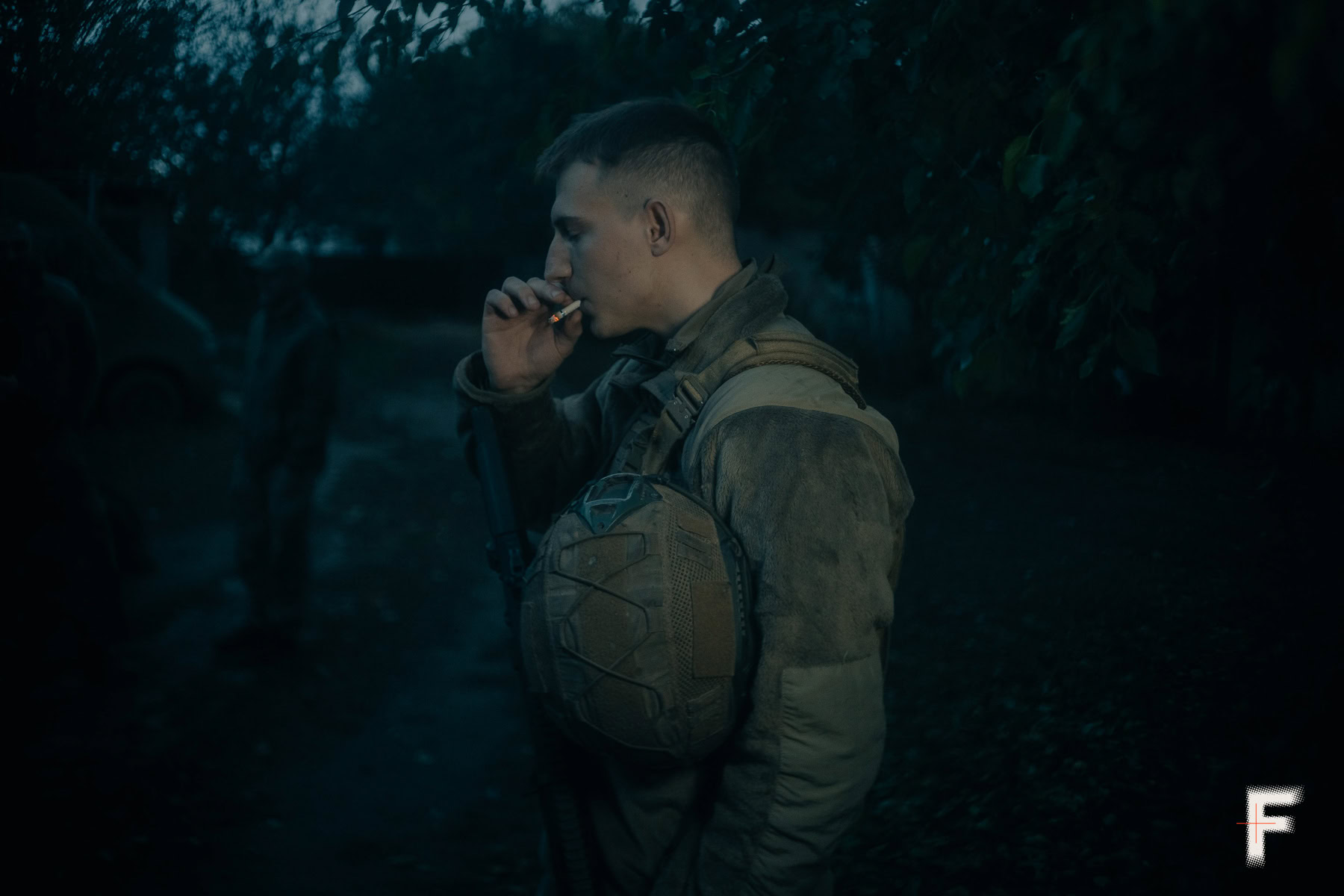

After the extraction, “Korshun” ended up in a hospital. All his personal belongings, including his phone, were lost, buried in the dugout, so his family didn’t know where he was for some time. His girlfriend contacted his command and learned where Maksym was being treated. She arrived immediately.
After his injury, “Korshun” spent some time recovering in Kyiv. For him, life in a calm rear city wasn’t bothersome, but certain questions about the war could irritate him, sometimes bringing back painful memories.
“There are all kinds of people – some are fools, some are reasonable, the ones who at least try to understand. The main thing is that your loved ones support you. As for the rest, it doesn’t matter if they don’t bother you,” the soldier reflects.
Maksym admits that what bothers him most in the war is the longing for home and family, especially when being deployed on a position:
The strongest fear is fear of the unknown. Sometimes a day goes well, and then for 15 days it’s just… a meat grinder.
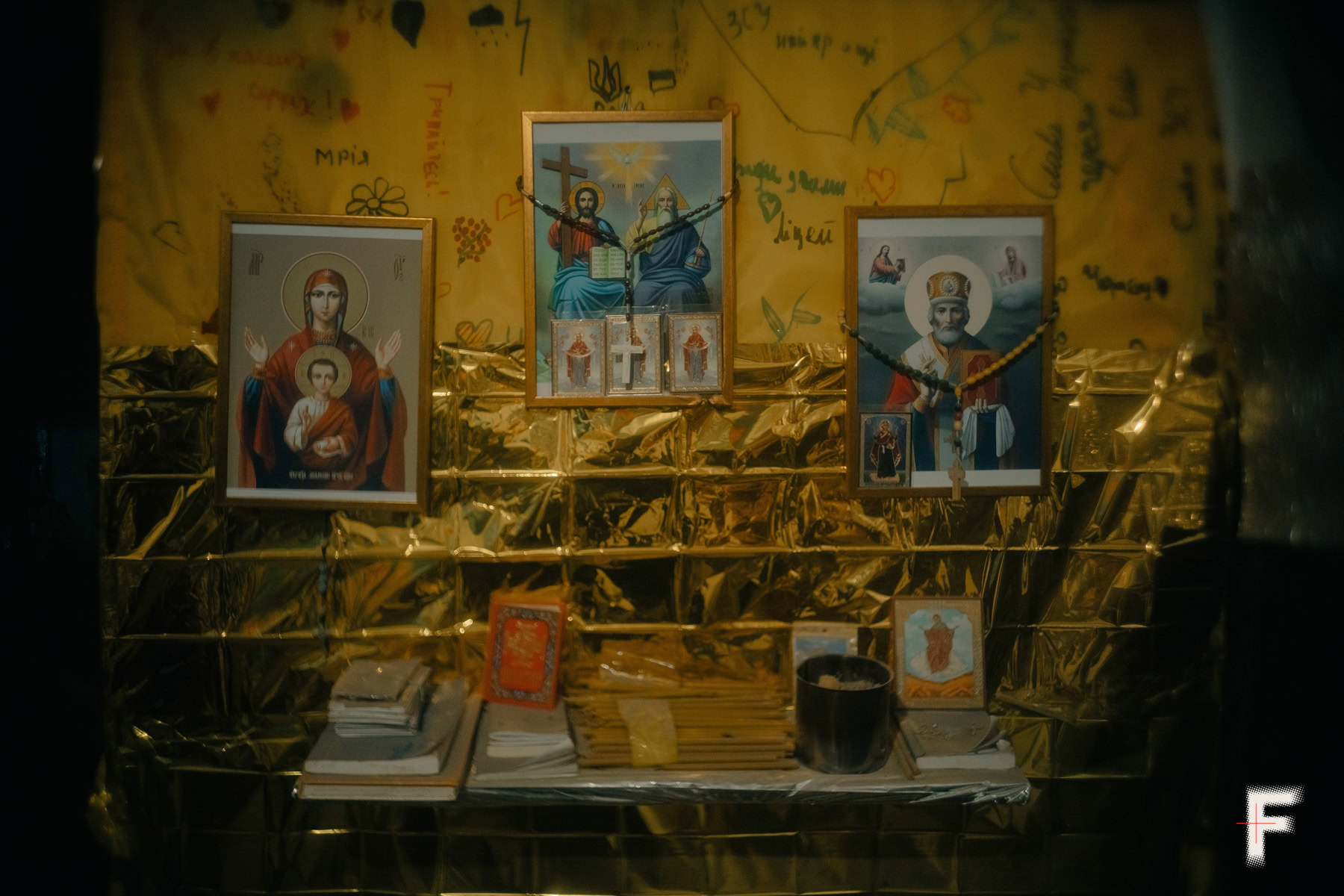

He says he’s not sure if he would have signed the military contract had he known what trials awaited him. Still, after some thought, he admits that he probably would have – as the idea had been spinning insistently in his mind for too long.
“Your will to live decides. If you really want to live, you will survive,” Maksym responds when asked if he considers himself lucky.
He clarifies that, on one hand, he was lucky to survive, but on the other, he was unlucky to have gotten into such a situation and been wounded at all.
Text: Olena Maksymenko
Photos: Marharyta Fal
Adapted: Irena Zaburanna
Читайте також — “Shaheds” and radiation – combat duty of a mobile fire group in the Chornobyl zone
